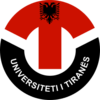On 1–2 April 2025, the Faculty of Economics at the University of Tirana welcomed three researchers from IUAV University of Venice for a two-day series of engaging lectures. These events were held in the framework of the EU-funded 1FUTURE project, which connects universities across Europe and the Western Balkans to build knowledge and resilience around climate and sustainability issues.
The first lecture on 1 April was delivered by Alberto Bonora, a PhD candidate and researcher, who introduced students to the challenges and opportunities of adapting agriculture to climate change. His talk focused on resilient farming practices, agroecology, and the role of innovation in ensuring food security in a warming world.
Following that, Paolo Capovilla, research fellow at IUAV, led an insightful session on Food Supply and Sustainability. He not only discussed global food policy and climate adaptation strategies, but also brought the topic closer to home by sharing examples of food trails and local initiatives from the region. These case studies helped students understand how sustainable food systems can be promoted through local action, responsible consumption, and stronger ties between producers and communities.
On 2 April, Elena Ferraioli, PhD and researcher, presented a lecture on Urban Metabolism and Circular Economy. She explained how cities function like living organisms—using, transforming, and wasting resources—and how they can shift toward circular models that reduce waste and environmental impact. Real-world case studies helped students visualize how circular thinking can be applied in planning, business, and governance.
These sessions brought together a diverse group of students from the Master of Science in Risk Management, bachelor’s in economics, and university staff. This visit was a great opportunity for students to engage with experts, explore climate-related challenges, and learn how local and global efforts can work together for a more sustainable future.
Organized as part of the 1FUTURE project, co-funded by the European Union, this activity supports cross-border learning and academic exchange to strengthen climate resilience in the Western Balkans and beyond.
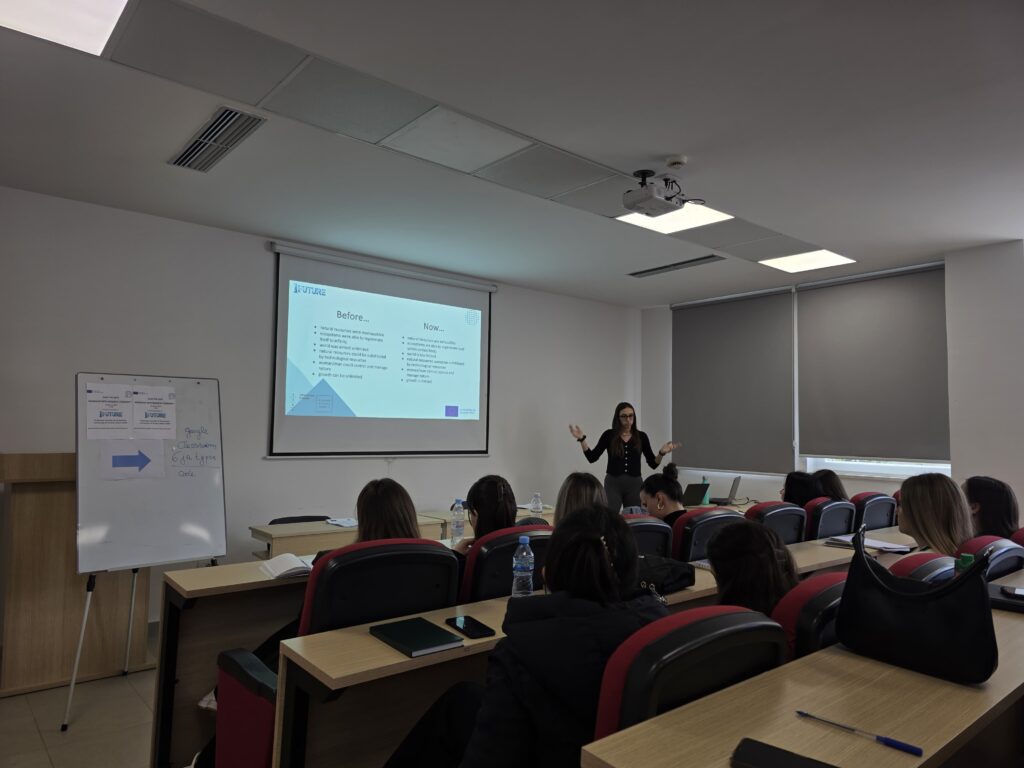
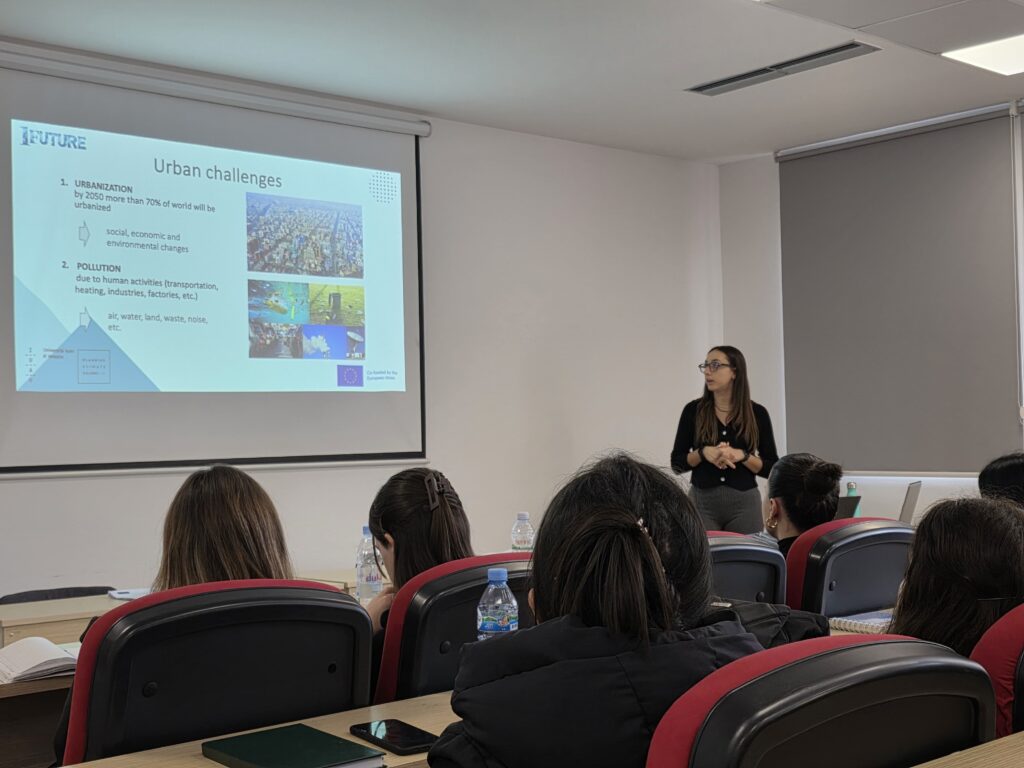
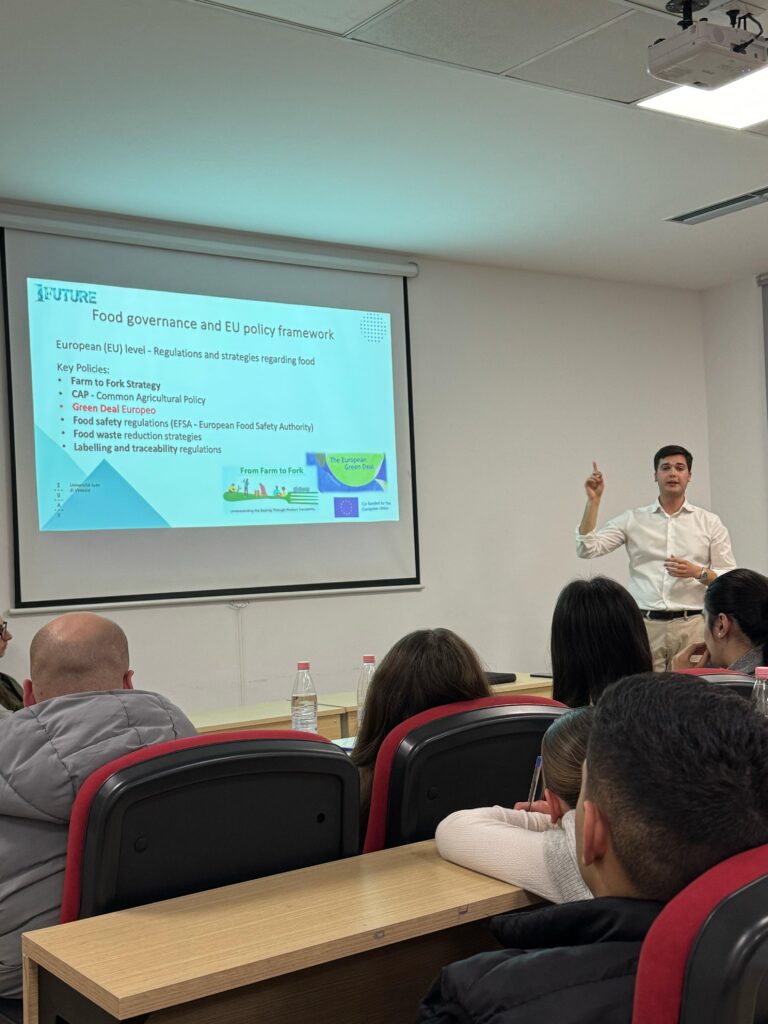
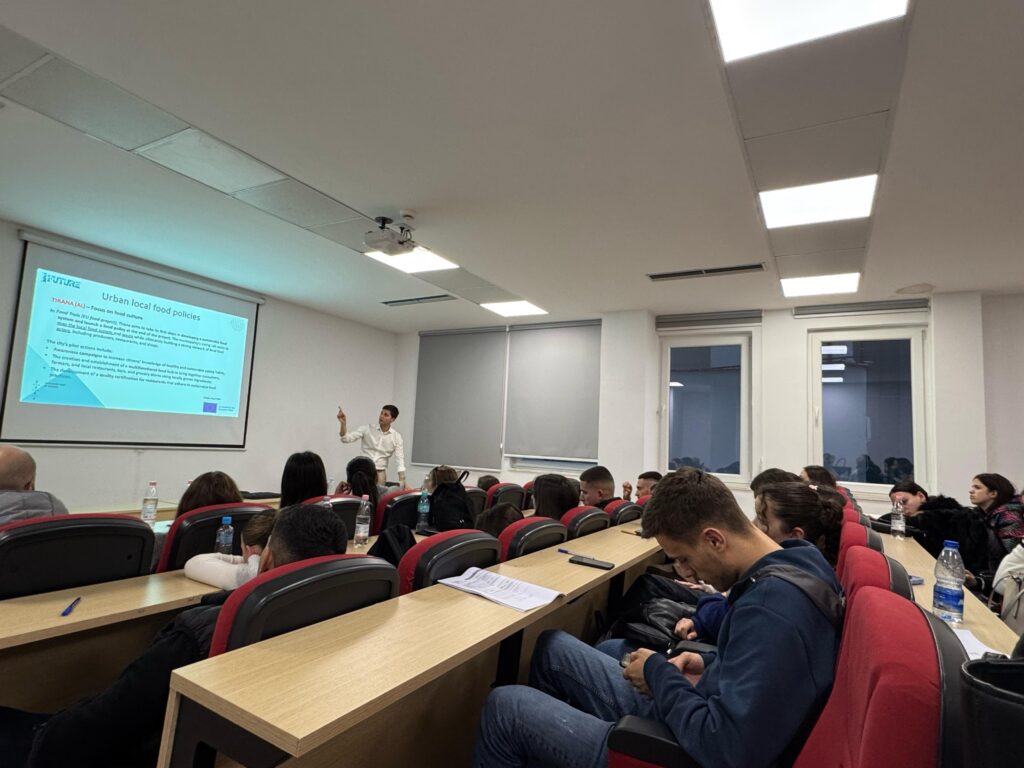
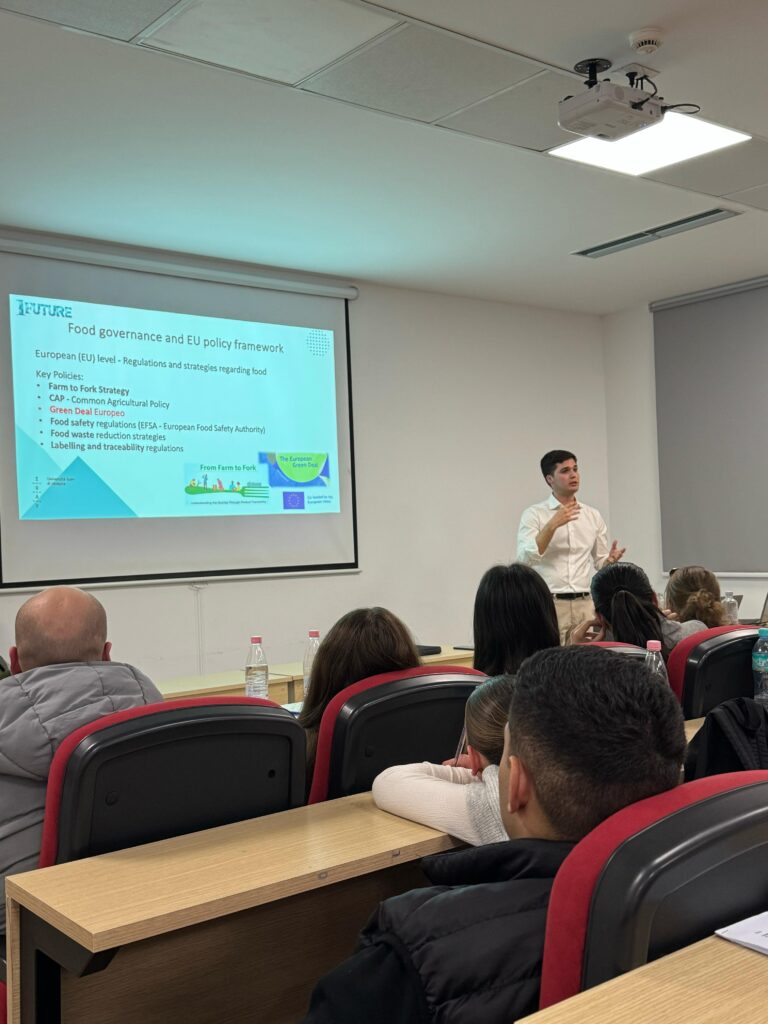
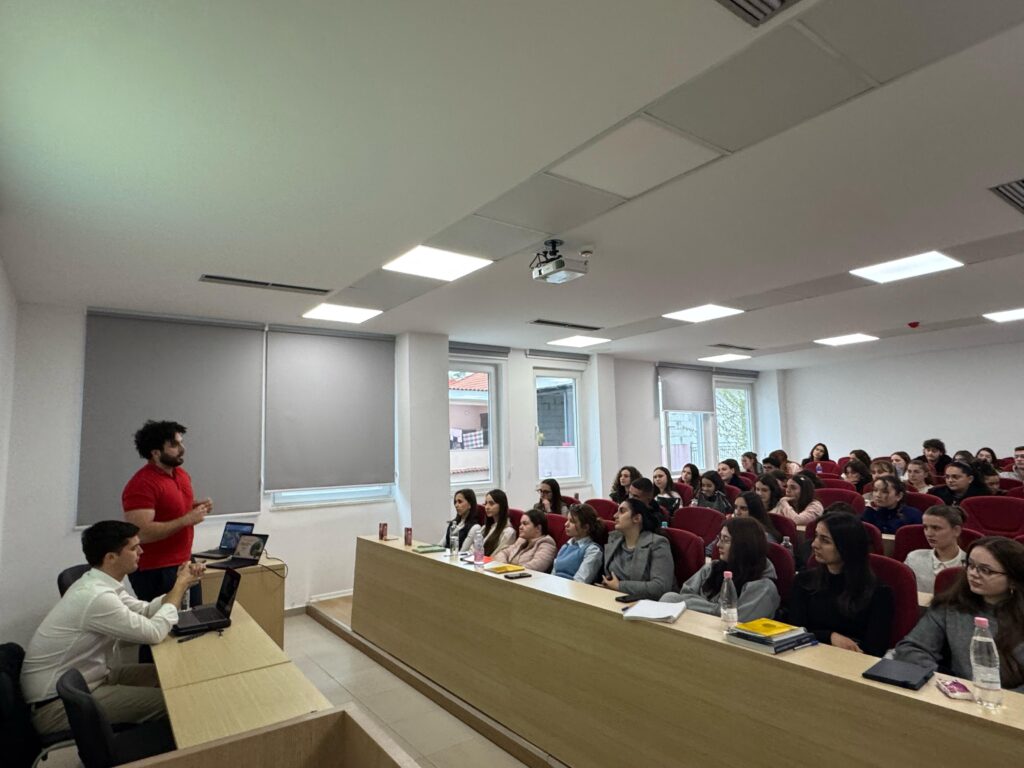
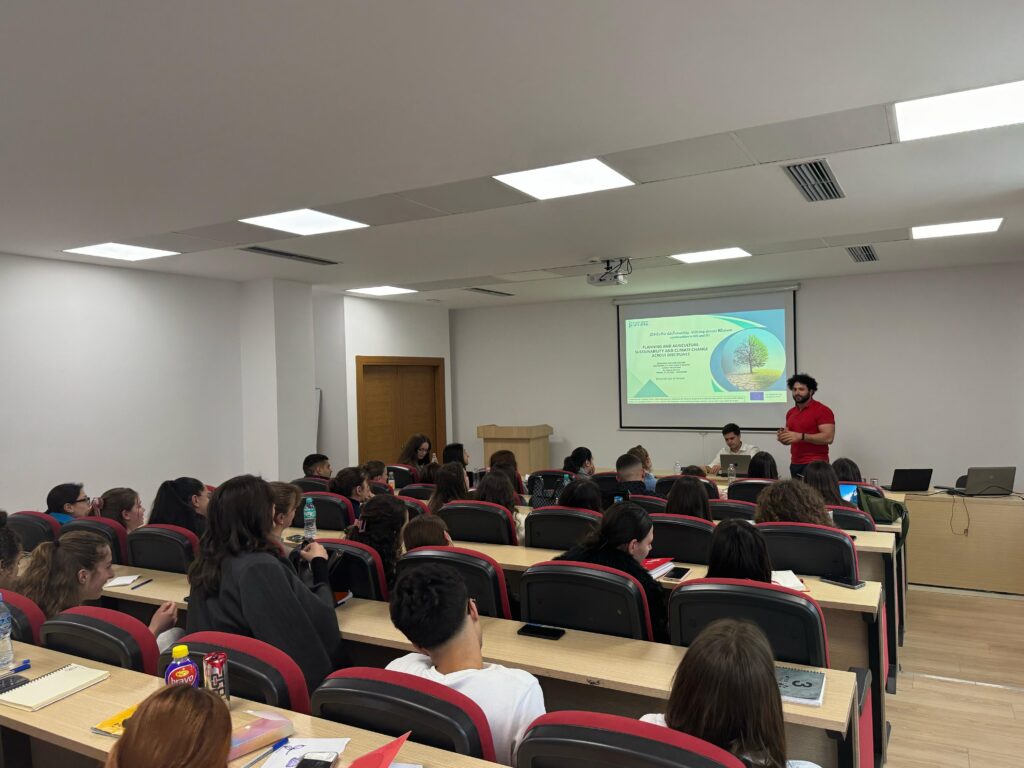
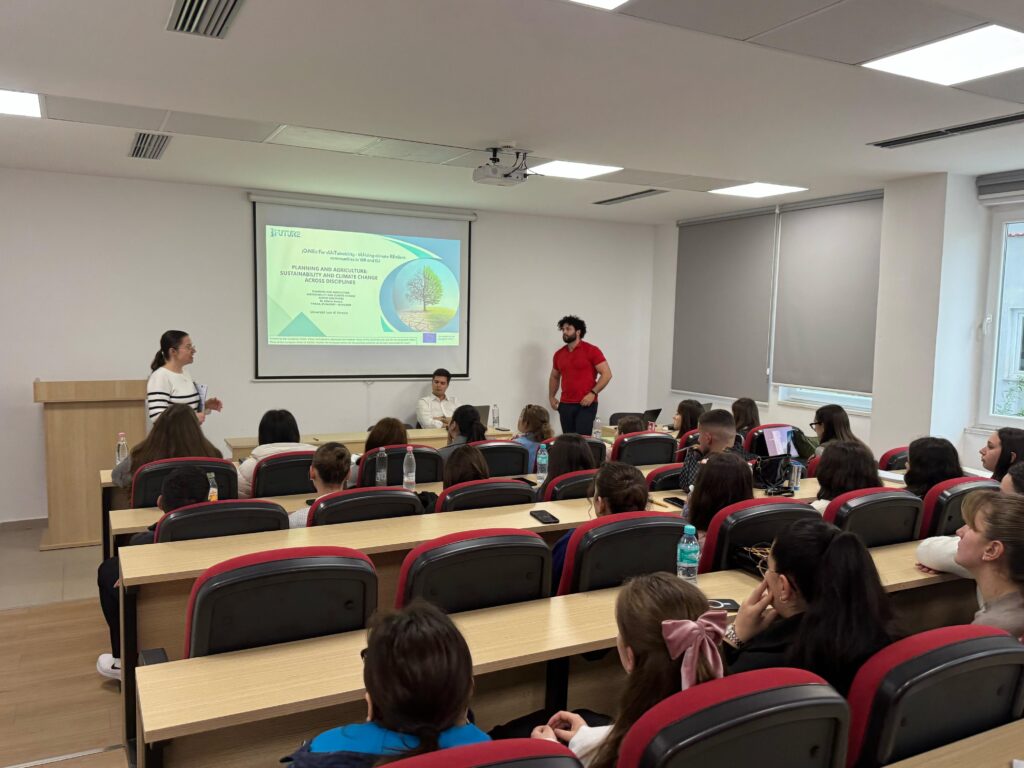
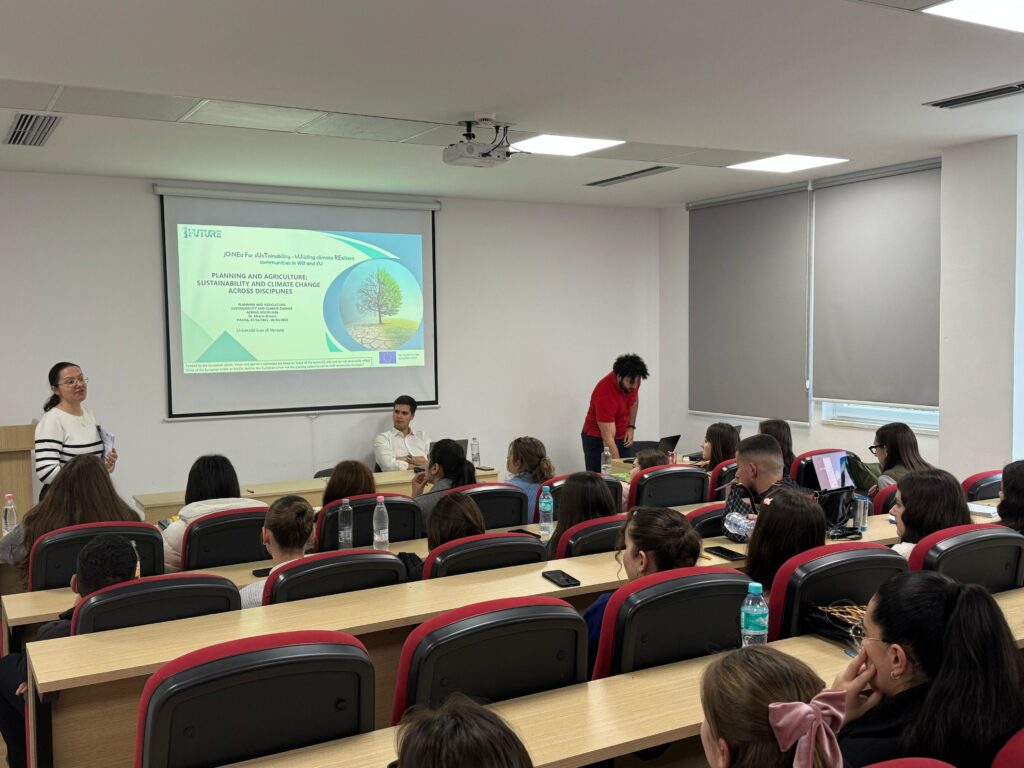
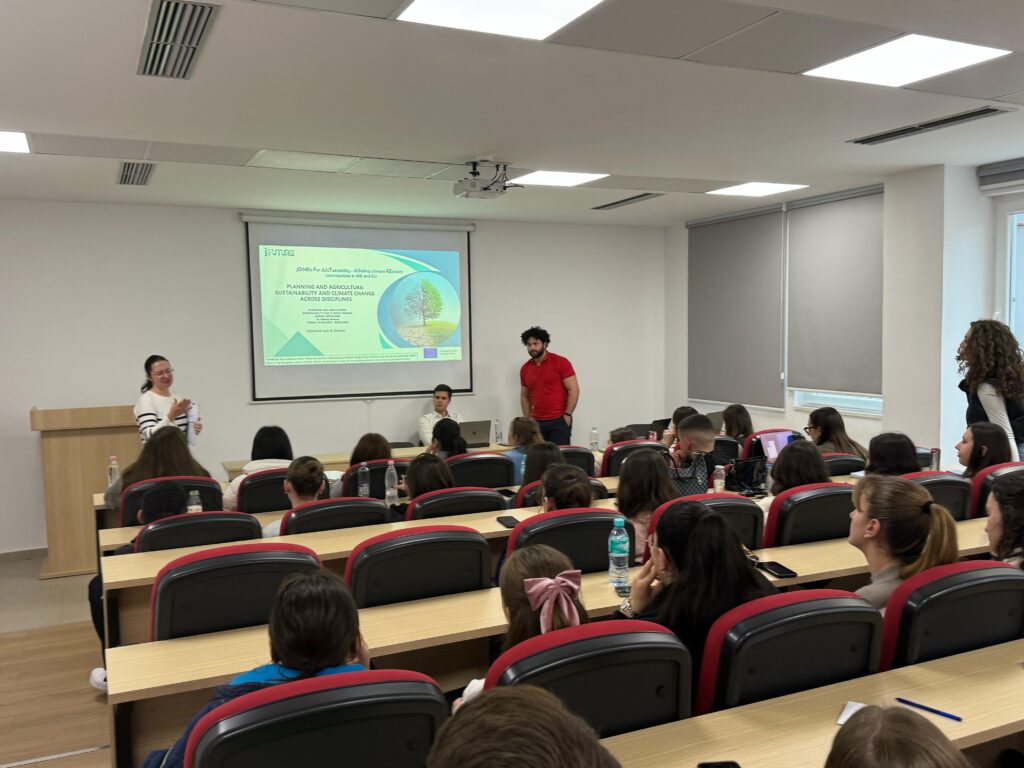
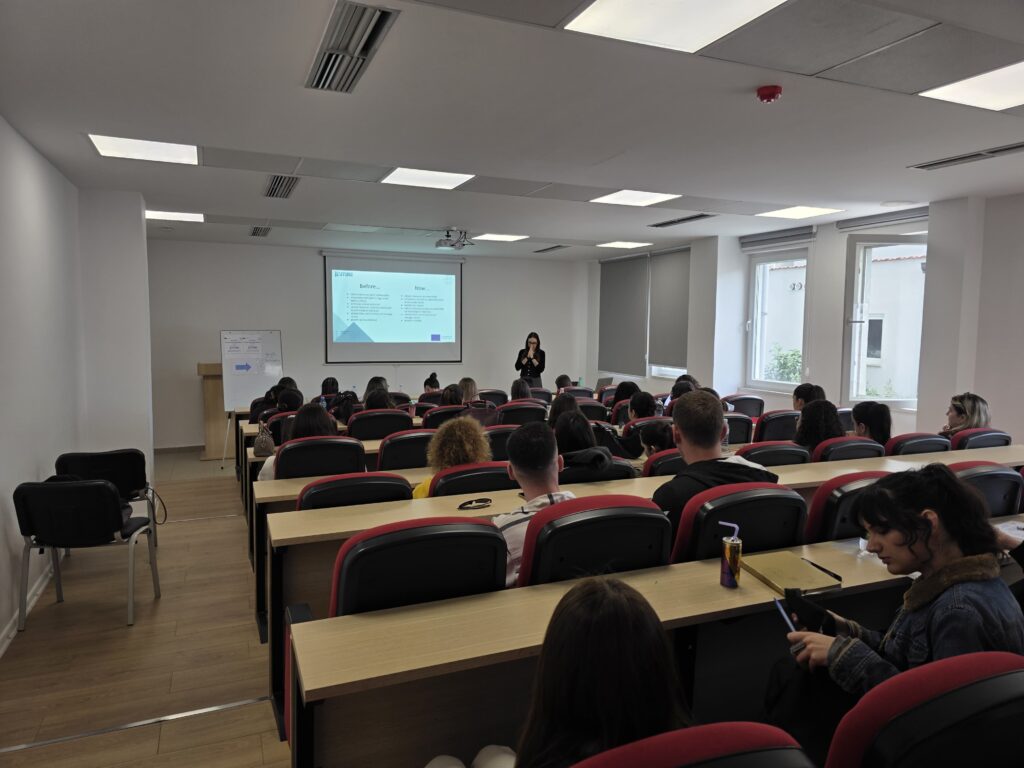
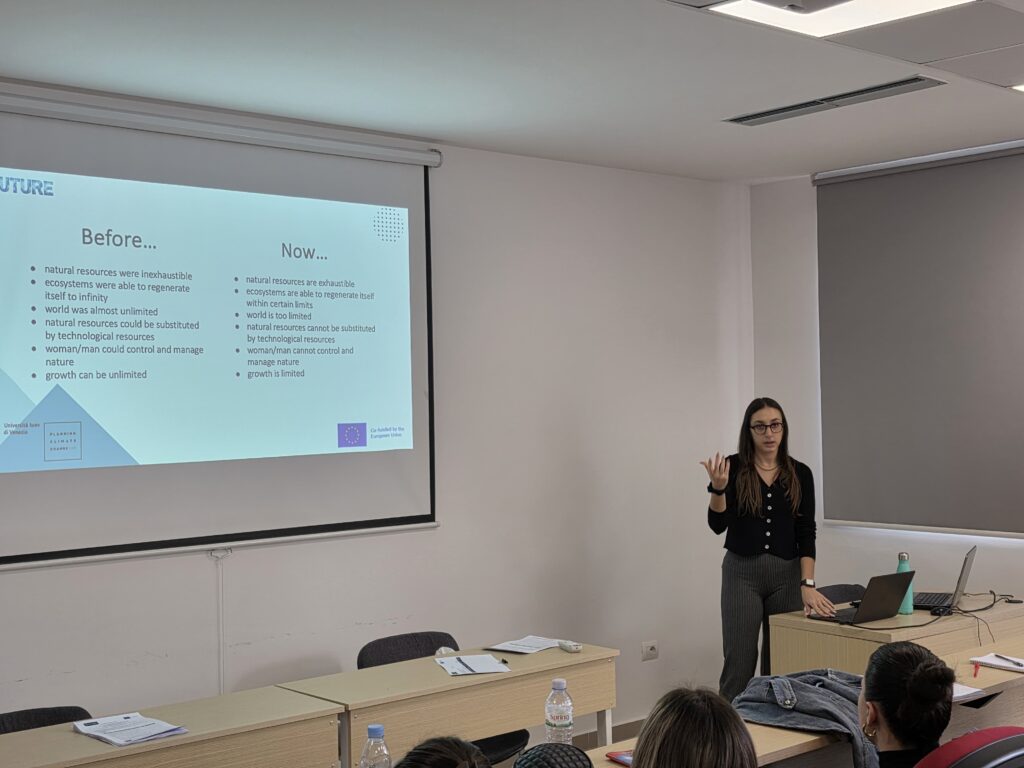
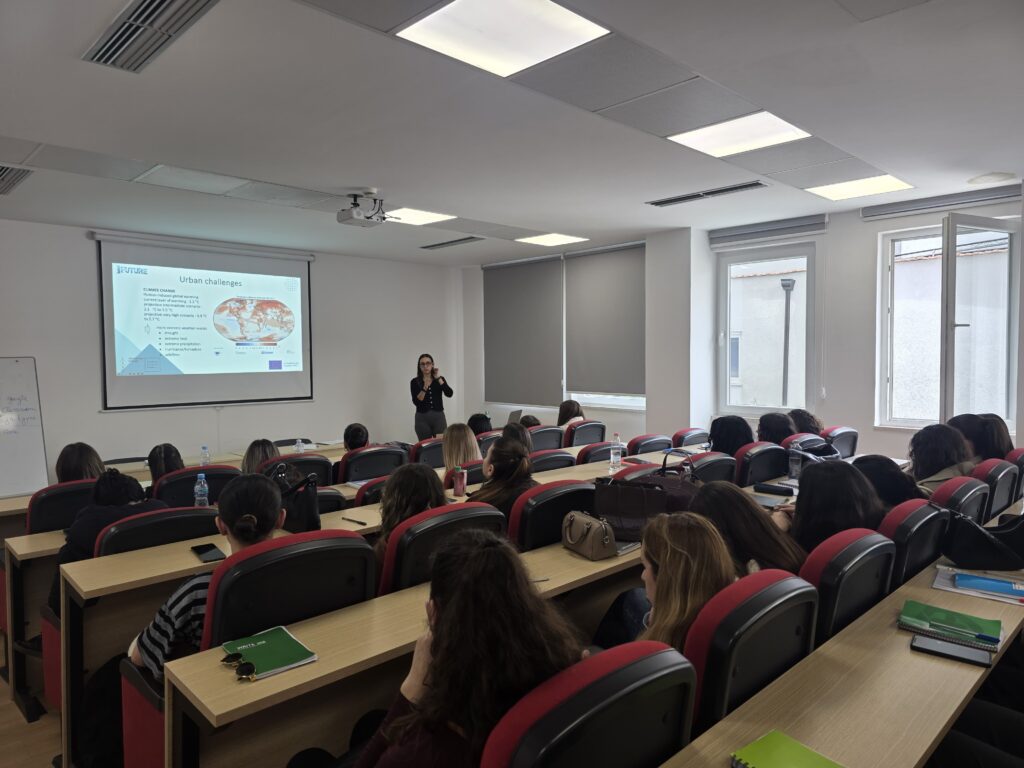
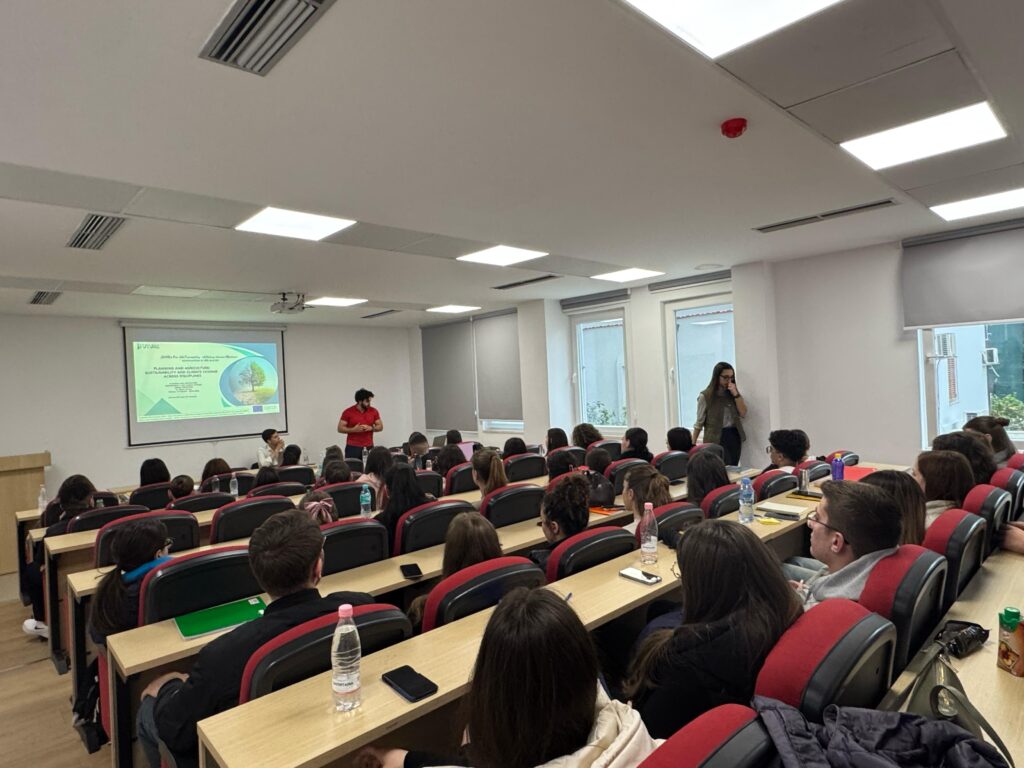
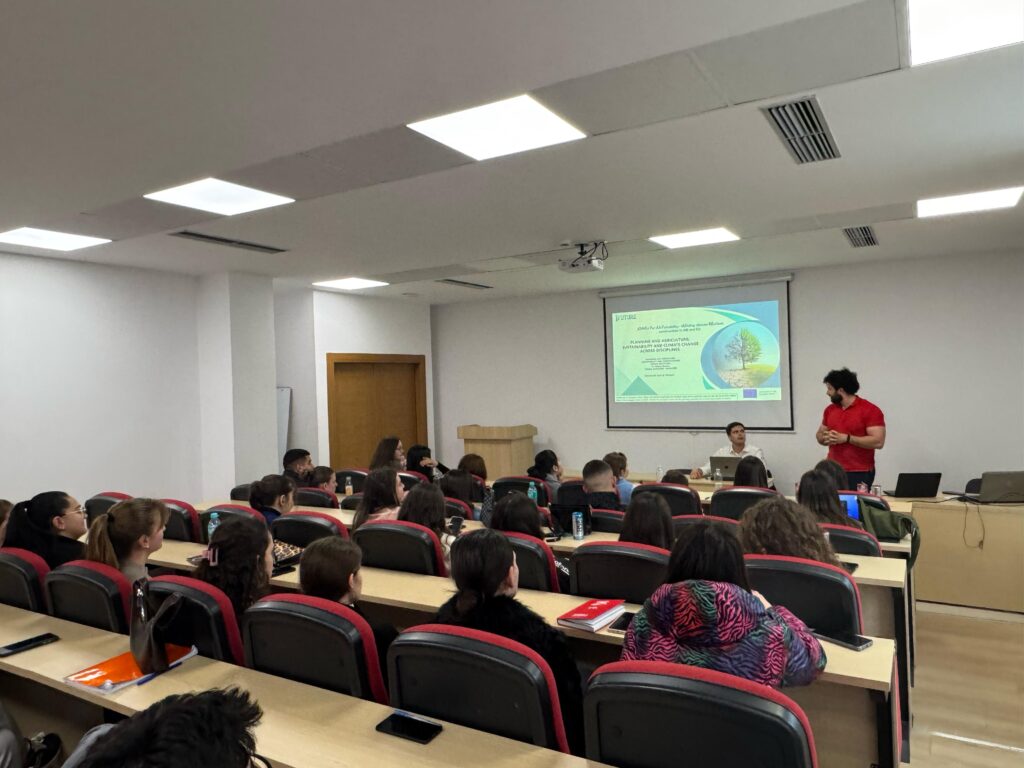
Views: 11



